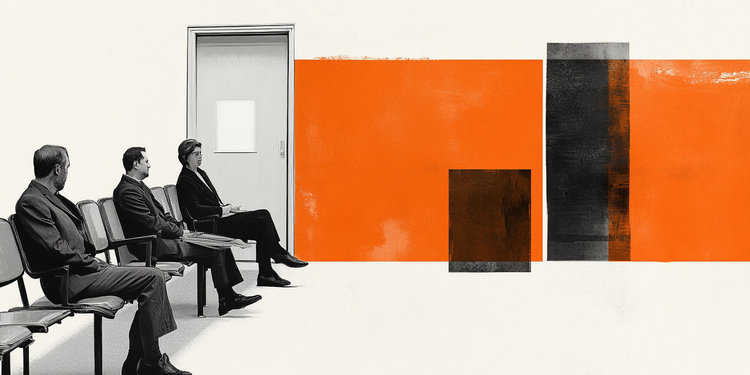How often a person should defecate has been a hotly debated topic, with experts stating that the numerical variation partially depends on several personal factors. But is there a similar prescription for how often we should urinate?
The answer is yes, experts say—and straying too far from that range in either direction probably warrants a close look at your lifestyle habits and health status.
During the day, most healthy people urinate about six to eight times, said Dr. Jamin Brahmbhatt, a urologist at Orlando Health and CNN contributor.
“For most, it’s reasonable to need to urinate every (three to four) hours during the day,” Brahmbhatt added in an email. “At night, ideally, you should only get up once or not at all. If you are waking up more frequently, it could mean something is wrong.”
What differentiates healthy urination from excessive urination?
Some people may urinate up to 10 times a day, especially if they’re drinking a lot of water or other beverages that cause more frequent urination, Brahmbhatt said.
This can include alcohol, tea and coffee, which have diuretic effects and irritate the bladder, said Dr. David Shusterman, a board-certified urologist at NY Urology in New York. (If these effects of coffee or alcohol bother you, try drinking less or making weaker coffee with extra water, and the cocktail with less alcohol and more mixing ingredient, he recommended.)
“Honestly, everyone is a little different, so there is no magic number that works for everyone,” Brahmbhatt said. “If it’s hot and you’re sweating a lot, you may urinate less. The important thing is to know what is normal for you. If you’re suddenly running to the bathroom a lot more — or a lot less — often, it might be worth investigating, especially if it’s hurting your quality of life.”
Excessive urination that is not due to heavy drinking or drinking can have multiple causes, including overactive bladder syndrome, diabetes, urinary tract infection or medications, Brahmbhatt said. Diuretic medications, often prescribed for blood pressure or heart conditions, are a common contributor.
Urination is controlled by a complex neurological system that involves signals sent between the bladder, urethra and brain, said Dr. Jason Kim, clinical associate professor of urology at Stony Brook University Renaissance School of Medicine on Long Island, New York. Consequently, excessive urination can also be caused by stroke, spinal cord injuries, and some neurological diseases such as Parkinson’s disease, multiple sclerosis, and central nervous system tumors.
Pregnancy is another factor, as it requires drinking a lot more water and, consequently, more water metabolism happening, Shusterman said.
Stress or anxiety can also make someone need to urinate more, Kim said, as the fight-or-flight response or release of adrenaline can make the bladder contract or increase urine production, respectively.
An overactive bladder can result from hormonal problems, such as genitourinary syndrome of menopause, Kim said, which is a cluster of symptoms caused by decreased estrogen levels.
“Interestingly, it is believed that there are estrogen receptors in the bladder,” added Kim, who is also director of the university’s Women’s Pelvic Health and Continence Center. “So we often add vaginal estrogen cream or suppositories to the patient’s regimen, and it has been shown to help with overactive bladder.”
If your urination pattern bothers you or you are regularly waking up at night to urinate, see a urologist who can help you determine what’s going on and potentially start bladder training exercises. This specialist may refer you to a pelvic floor therapist if your problem appears to be due to pelvic floor dysfunction, Kim said.
There are several other minimally invasive treatments available, experts said, including medications, Botox bladder injections and types of nerve stimulation, Kim said.
The injections help weaken the bladder nerves so that “the bladder wall doesn’t contract as much, therefore down-regulating how often your body needs to go to the bathroom,” Shusterman said. Procedural interventions tend to be much more effective than medications, Kim and Shusterman said.
Signs and reasons you may not be peeing enough
On the other hand, urinating only every six to eight hours, or less than four times a day, may indicate that you are dehydrated or that there is a problem with your bladder or kidney function, Brahmbhatt and Shusterman said.
Abnormally high levels of calcium can lead to the formation of bladder stones and block the flow of urine, Shusterman explained.
Regarding hydration, the National Academy of Medicine recommends that women consume 2.7 liters (91 ounces) of fluids daily, and men 3.7 liters (125 ounces) per day. This guideline includes all liquids and water-rich foods, such as fruits, vegetables and soups. Considering that the average water intake ratio between liquids and food is approximately 80:20, this equates to a daily amount of 9 glasses for women and 12.5 glasses for men.
Not urinating enough can increase your risk of bacteria building up in the urethra and, consequently, developing urinary tract infections, since urinating regularly is the body’s main mechanism for preventing UTIs, Shusterman said.
If low urinary frequency occurs because you are holding it in, this habit can harm your health, increasing the risk of multiple problems, such as kidney infections or weakening of the bladder muscles due to constant straining.
If your lifestyle habits are adequate but you still don’t urinate enough, this also requires consultation with a urologist or subspecialist in voiding dysfunction, a medical term for problems with bodily functions that excrete waste. A doctor would assess whether the cause is obstructive or non-obstructive, Kim explained.
“Urinary retention due to obstruction occurs when, for example, the urethra is blocked and urine cannot exit,” he explained. “Non-obstructive is more related to some type of withholding behavior, when in men, as they age, invariably, every man’s prostate enlarges and is often a cause.”
For older women, this retention may be caused by a narrowing of the urethra, Shusterman said.
Reduced urinary function can also be a result of the same neurological diseases or injuries mentioned previously.
Unfortunately, there aren’t many treatments for an underactive bladder, Kim said, other than self-administered intermittent catheterization, long-term catheterization and sacral neuromodulation, a bladder pacemaker. These procedures can be life-changing, he added, so if you need help, don’t wait to seek it.
This content was originally published in How many times a day is it normal to urinate? Doctors explain healthy patterns on the CNN Brasil website.
Source: CNN Brasil
I am an experienced journalist and writer with a career in the news industry. My focus is on covering Top News stories for World Stock Market, where I provide comprehensive analysis and commentary on markets around the world. I have expertise in writing both long-form articles and shorter pieces that deliver timely, relevant updates to readers.







